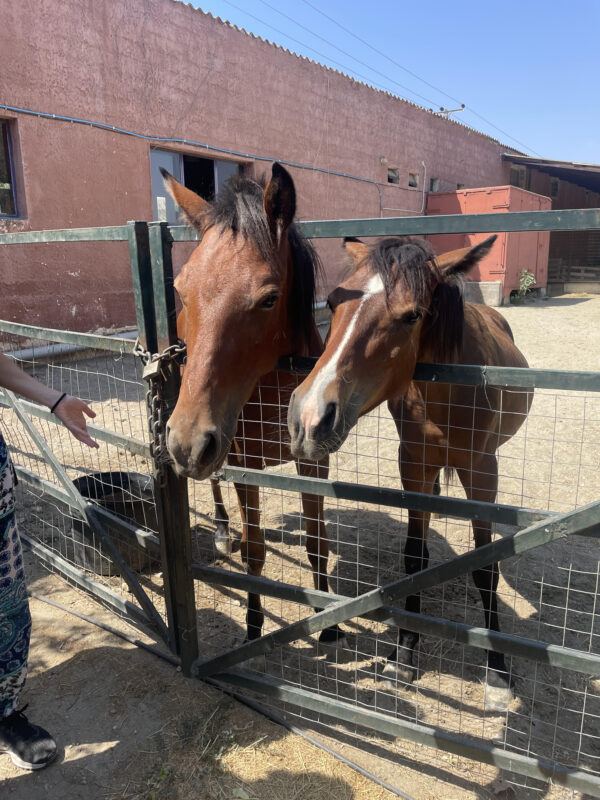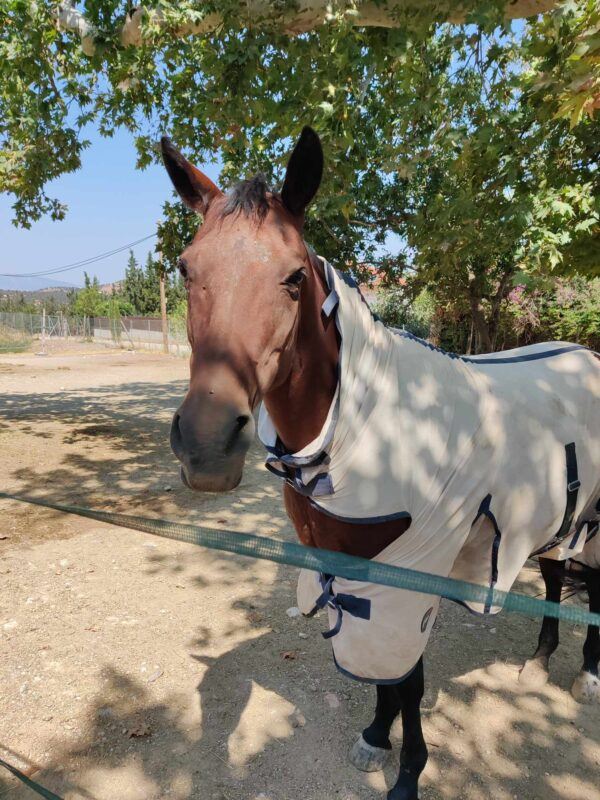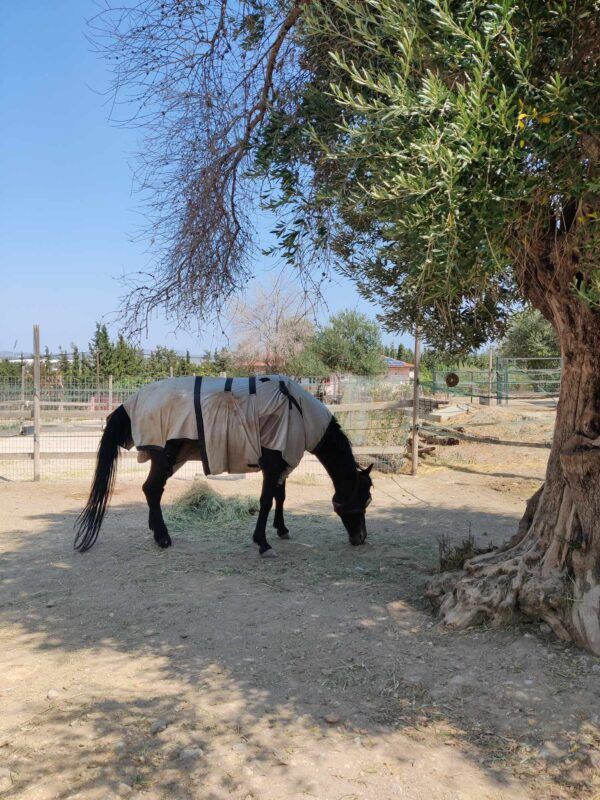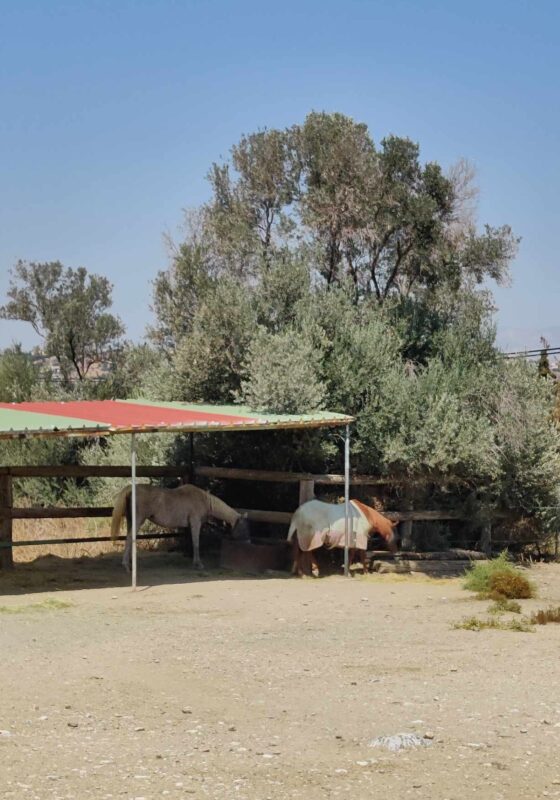Supporting Causes That Matter: The Hellenic Society For Equine Welfare
As the business year inches to a close, it’s time to start taking account of what we have contributed to our communities. We, at eLearning Industry, have remained committed to expanding our impact beyond our sector, dedicating our resources to support causes that matter to us and our employees. This year’s CSR program brought us to the Hellenic Society for Equine Welfare, a Greek animal welfare organization and sanctuary for abused, neglected, and abandoned horses, donkeys, ponies, and mules.
To support the Hellenic Society for Equine Welfare and help them continue their great work, we’re publishing this article to spotlight their vital impact on equine welfare and showcase to our audience ways they can contribute. We also wish to shed light on our own experience, visiting the animals, learning about their stories, and witnessing how this organization has transformed their lives.
The Importance Of Equine Welfare Organizations
As is the case in many countries with a centuries-long tradition of animal labor, equines remain unprotected by the Greek legal system, which still considers them working animals instead of companions. Historically used for leisure, sports, production, work, or even exported for their meat, equines serve multiple of these roles throughout their lifetimes when they stop being considered “useful” in any one area.
Because they are viewed as property, they are more likely to be abused, neglected, mistreated, or abandoned. The summer months are especially challenging as recreational carriage rides and luggage-hauling services become part of the local amenities offered to the myriad of visiting tourists. Hobbling practices, lack of shelter, exertion and physical damage from overworking, insufficient grooming practices, or absence of veterinary care are elements that make up the year-round reality for thousands of these animals—but said reality rarely takes up the limelight.
This is where the Hellenic Society for Equine Welfare comes in. Receiving reports from eyewitnesses, they are able to pinpoint the location of an abused animal, evaluate its state, and commence a lengthy legal process to seize it and bring it to their care. Unfortunately, the organization is not always able to intervene, because, as we mentioned above, the equine is still considered someone’s property. Only in lucky instances are they able to seize the animal, and that’s if they can’t identify an owner.
The Hellenic Society For Equine Welfare
It all began in 2006, after an appalling incident, involving the transportation of 64 horses to slaughterhouses in Italy by a horse dealer, brought them to action. They were able to seize the animals and bring the dealer to trial. Today, they are still going strong. Marking almost 20 years in operation, the Hellenic Society for Equine Welfare (ESPI in Greek) has aided hundreds of animals, helping many of them find their forever home. Their facilities include 20 stables, 13 paddocks, and a large arena, and currently house 18 animals, including horses, donkeys, ponies, and mules.
Currently operating on the grounds of a former horse-riding school, in an area well-known for its hippodrome, the contrast of ESPI’s vision with the conventional notion of equines’ “acceptable uses” is undeniable. They are an equine sanctuary and rescue facility that both houses and cares for abused equines. Their main objective lies in protecting these animals from human cruelty and treating them, and their great work is solely based on their amazing volunteers, who dedicate time and effort to ensure that these horses get the best chance at a happy, comfortable life.
The equines residing in their premises are either awaiting adoption or set to live fulfilling lives under their care. With their expenses reaching thousands of euros every month, their vital work is only possible through the public’s aid, via volunteerism or donations. And, as strained as their resources may be, they continue to pursue goals of a significantly larger scale, trying to put an end to equine abuse by raising awareness and educating the public and law enforcement officials to take a stance against cruelty.
Our Visit
The experience of seeing their work in action felt just as important as supporting the sanctuary’s cause itself. It illustrated the innate resilience of the animals and the importance of not looking the other way when it comes to witnessing animal abuse. ESPI’s commitment to their mission and their deep love, appreciation, and respect for these animals becomes apparent from the moment one enters the premises. We learned about these animals’ journeys to rehabilitation while watching them enjoy the sun and the fresh produce we brought them; it was as much a treat for us spectators as it was for the animals themselves.
We left having learned many valuable lessons that we hope to convey to our audience by shedding light on this organization’s crucial impact. It takes a great deal of dedication and effort to keep going and to keep advocating for causes as vital as this one, but it’s necessary.
The Herd
To further support the Hellenic Society for Equine Welfare, we sponsored five horses, covering their expenses for a full year, which includes their vet bills, food, bedding, shoes, and everyday care. Through sponsorships, ESPI is also able to maintain its premises and continue its work of rehabilitating and rescuing more animals that need help.
Let’s meet these amazing horses!

Perseus and Danae were found in a terrible state, malnourished and riddled with wounds and parasites. After a long rehabilitation journey, they are now thriving under the care of ESPI’s volunteers. They live very happy lives, fighting over who will get the most carrots, and waiting for the right person to adopt them.

Carmen was rescued from an unlicensed “municipal zoo” on the Greek island of Kasos in 2019. Along with her ten-day-old colt, ESPI brought them to their premises and nursed them back to health. Carmen’s baby has now been adopted, but she’s still waiting patiently for her turn.

Angel has been with the Hellenic Society for Equine Welfare since 2013. Abandoned by her owner, she was found malnourished with a wound in one of her hind legs, which left her without a hoof. Despite her state, she persevered; now nothing can stop her from gaiting proudly on three hooves.

Found grazing at the side of a highway, Hera was taken in by ESPI and treated for a large tumor under her tail, and later on, another inside her nostril. Despite the persistent medical hardships she is still facing, ESPI is making continuous efforts to ensure she’s well-cared-for and comfortable. At the moment, she’s enjoying the companionship of her best friend, Jerry (pictured left), who faithfully follows her around everywhere. (She wasn’t very interested in our visit, but there are some lovely close-ups in her portfolio.)
Help ESPI Help Horses
It is remarkable how these animals continue to offer us unconditional love and companionship despite the way they have been treated. Equine abuse and neglect are significant issues that demand our attention. Let’s take a page out of the Hellenic Society for Equine Welfare’s book and step forward to offer a helping hand to the animals that need it.
If you wish to support the Hellenic Society for Equine Welfare, consider making a donation or sponsoring an animal. You can even visit in person to meet the herd and learn more about ESPI’s mission. The sanctuary is open for visitors every Sunday morning, so make sure to add it to your itinerary for your next trip to Greece.
Lastly, if you encounter an abused, neglected, or injured animal, don’t look the other way. Report it to an organization like ESPI and give it a chance at a better life.

